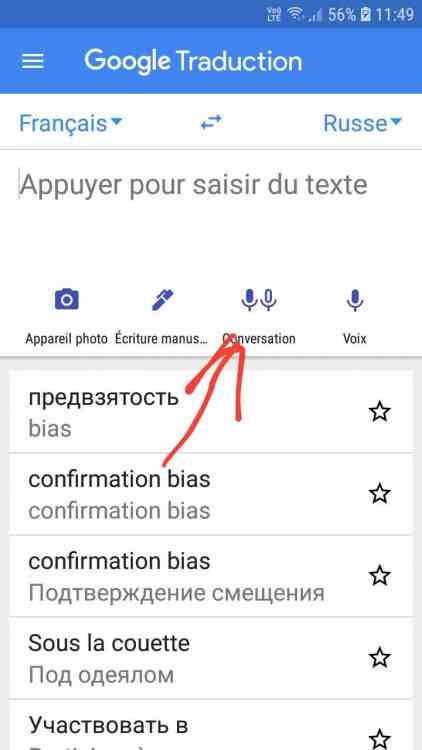
nkaretnikov
-
Posts
8 -
Joined
-
Last visited
Posts posted by nkaretnikov
-
-
Yet another thing you might try is setting computer interface language to French. You know, "boîte de réception" instead of Inbox, Envoyer for Send, etc
-
On 6/20/2018 at 10:11 PM, Bekhruza said:
Try to use English when you’re thinking about your day, or when you’re trying to decide what food to order. Even try to use an English to English dictionary to look up words.I liked that advice the most! That technique engages your cognitive abilities to remember the idea of the word, not just a match in your native language.
At some point I even tried backward approach - when struggling to remember or explaining a word's meaning in my native language I first looked it up in English to English dictionary
-
Hello!
I believe that English is one of the most '"translated to" languages, so as nowadays computers use vast number of people translated text to find the perfect match in the translate to language pair, learn it and then using google translate apl talk to anyone
-
Hello! I agree with Nuker! Chat bots, machine translation are good for understanding, pronunciation practice and peeking up new vocabulary, but only engaging with real native speaker builds your confidence and broadens your limits. And some will take so long to master
 Sports and cuisine domains are still my limits, for example, even after many years of studying English
Sports and cuisine domains are still my limits, for example, even after many years of studying English 
-
-
Hello! I would recommend YouTube channel français authentique
. Guy there gives all sort of useful advices, speaks French distinctly and what is the best have all videos subtitled
-
Hello!Here is a briefly outlined quite radical approach to learn languages at this era of smartphones.As a dictionary is in your hand and always ready to be called ( I assume google translate is on every smartphone), training in general and video training in particular should be focused on what machines are still bad at and probably will be bad in coming 3-5 years.Namely, GT conversation mode does not produce good enough transcription of what several people saying at the same moment and what a person says when the voice is mixing with music, for example. I dare to state that during communications (at the table, over the phone) catching the meaning of sentences being said is enough. Then you just make sure that what you're going to express is well typed into GT and push mic button. Short, well expressed thoughts are translated instantly and better by machine than by human.Learning foreign words and pronunciation should not be a priority at all. Instead, learning of useful phrases is necessary. Phrases like "please wait until I use my device to translate", "I'm sorry, translation will only take 30 seconds. Would you please wait a bit".Again, the general idea is to quickly get to know how to use machine in your advantage and then rely on it as much as possible. This same text if GTed from Russian to English will probably have fewer errors.Another thing I noticed while working with GT. The longer the text gets the more difficult it is for GT to output ideal translation. Consider this FR-EN passage https://goo.gl/KSGmY9 it is not so good. Notice GT used "thought" instead of "designed", but then take only part of it (distinguished phrase) https://goo.gl/NBSVMd and the translation is perfect. So, explaining to students how language is designed, how to recognize the end of phrases and divide a given text into ready for auto-translation pieces will also speed things up considerably.I'm certain that Spanish, Chinese, German, French, Portuguese, Russian can be easily studied in 2-3 weeks. Some well designed smartphone oriented course will take you to the level good enough for talking to foreign friends, communicating while travelling. I have recently participated in a meeting where this machine approach was used for business dialogs.Thank you for those who bore with me until this. I would like you to weigh in and support or critic these extremely enthusiastic ideas



Basic Chinese Grammar
in Chinese Grammar | 语法
Posted
Hello!
Try HelloChinese app (google play)
Another good one is DuChinese